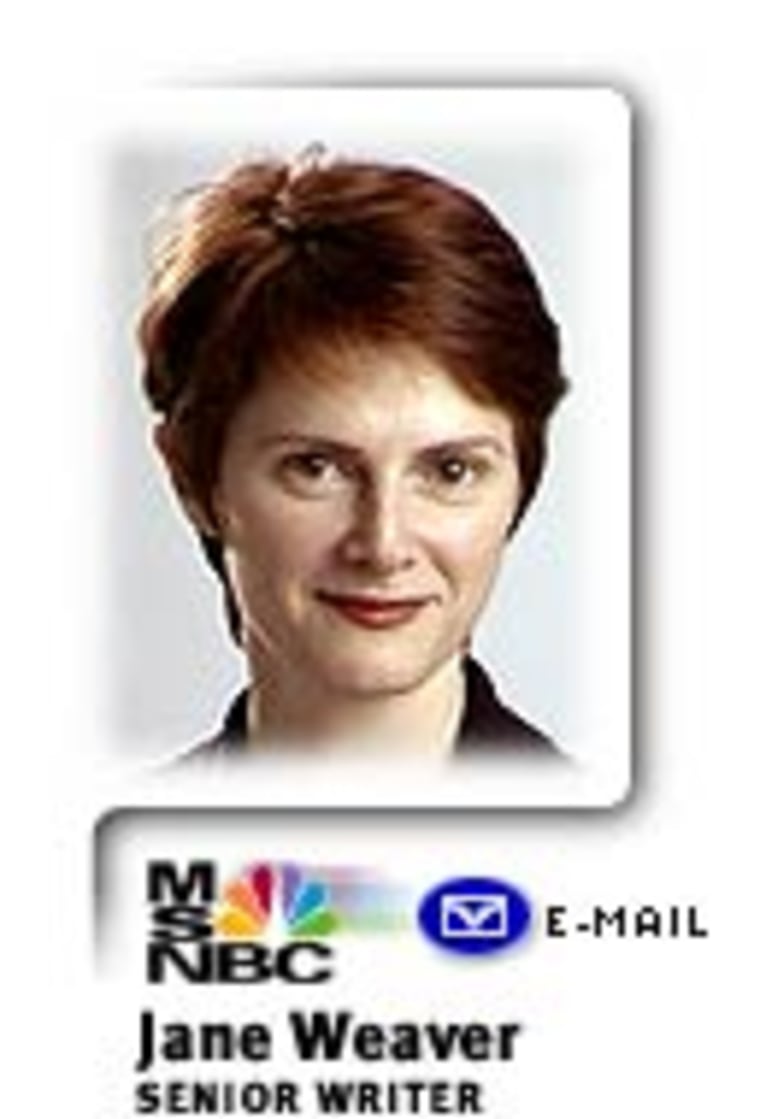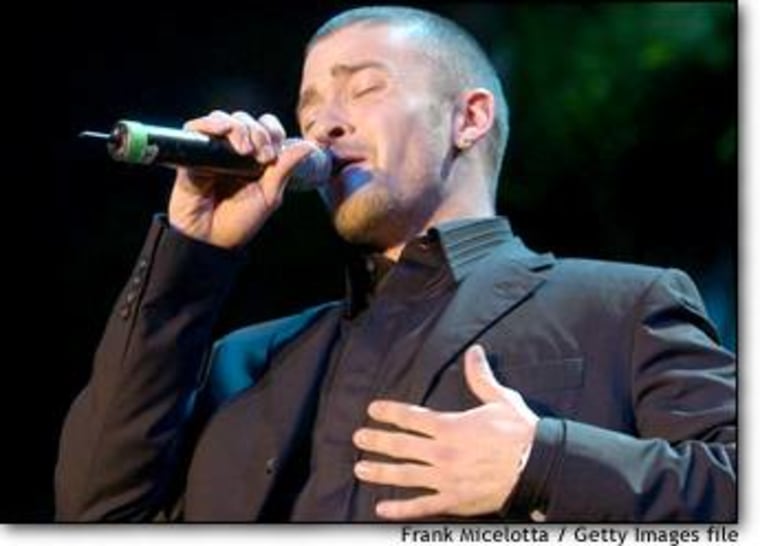As the touring industry heads into its biggest season of the year, the war in Iraq has slowed sales of some music concert tickets. But the shows are still going on, with headliners the Dixie Chicks, Fleetwood Mac and The Dead selling out venues across the country. Yet there are industry concerns that high ticket prices, the struggling economy and even some musicians’ anti-war talk could keep fans from packing stadiums.

WITH SUPERSTAR ACTS like Bruce Springsteen, the Eagles and Dave Matthews hitting stadiums in the next few months, concert promoters are hoping this summer will be a turnaround season for the touring business.
But there is concern that a longer-than-expected war in Iraq and a shaky economy could turn some fans into air guitar playing homebodies.
The war has already disrupted sales of a number of acts, according to Randy Phillips, chief executive of AEG Live, which promotes acts such as the Dixie Chicks, Fleetwood Mac and the Eagles under the banner of Concerts West.
While difficult to make year-to-year comparisons on concert sales, first day ticket sales during the weekend of March 29 were down 30 percent compared to previous tours for the same artists.
Daily ticket sales are off 20 percent for those acts since the war’s start.
For a major concert event to be considered a sure money-maker for a promoter, more than 60 percent of tickets need to be sold on the first day they’re available, including pre-sales from artists’ Internet clubs.
“The war has had an affect beyond the economy,” said Phillips. “People are very uncertain about the future.”
“War worries, another potential terrorist strike, that makes everyone nervous,” said Gary Bongiovanni, editor in chief of Pollstar, a concert industry tracking company.
AEG’s Phillips isn’t overly worried about the war’s impact on summer, the key season when half of concert shows are booked.
“There will be a bounceback once we know what the conclusion is,” he said. “At the end of the day people have to go out, they’re not going to sit in their homes.”

As examples, he cites quick sell-outs for big acts like Fleetwood Mac and the co-tour of former N’Sync’er Justin Timberlake and sultry singer Christina Aquilera.
Still a number of U.S. music groups like Matchbox 20 and Kelly Rowland of Destiny’s Child have cancelled or postponed tours in Europe and England until the fall because of increased travel risks in wartime and fears of terrorist reprisals.
What’s worse, the SARS outbreak has wrecked havoc for Asian entertainment promoters. The Rolling Stones, Moby, Carlos Santana and even veteran crooner Andy Williams have cancelled or delayed concerts in Hong Kong because of fears of the deadly virus, potentially draining millions of dollars in entertainment revenues away from the region.
As yet there have been no war-related concert cancellations in the U.S.
Promoters are nervous that the $2 billion-a-year concert industry could be waylaid if there’s a terrorist repraisal or if a drawn-out war damages the U.S. economy.
“The scariest part of our industry is if there were an attack on our soil,” said Tom Wilson, president and chief executive of Palace Sports and Entertainment, producer of shows such as Billy Joel and Elton John and the Ozzfest outdoor event.
PRICEY TICKETS IN A DOWNTURN ECONOMY
The concert business is trying to rebound from a post-Sept. 11 slump. In 2002, the industry posted a 20 percent revenue increase to a record $2.1 billion in 2002, compared to $1.75 billion in 2002, according to Pollstar.
Bob Grossweiner, a respected concert industry analyst, says the economy and exorbitant ticket prices are hitting the touring business harder than war worries.
“If concert tickets don’t sell, it’s because people don’t have the money, ” said Grossweiner. “I see tours not doing well because of the economy, not because of the war.”
Concert grosses may be at record levels, but it’s coming from fewer people. In 2002, the total number of tickets sold for the top 100 tours dropped 5.4 percent from two years prior, Pollstar estimated.
It’s easy to understand why — prices can easily top $200 or more per ticket.
“It’s not just the ticket, its the parking, the babysitter,” said Grossweiner. “There are all these add-ons.”
From 1996 to 2001, concert ticket prices skyrocketed 61 percent compared to just 24 percent for movie, theater and sports tickets, according to a Princeton University study. For the top 100 acts, prices jumped 79 percent in the last eight years, Pollstar estimated.
“The record gross revenues are coming from fewer and fewer people,” said Pollstar’s Bongiovanni. “It’s not a good formula for the longterm health of an industry.”
That’s why PS&E has decided to offer blocks of $10 tickets at every show this summer. The specially priced tickets would have to be purchased at the venue’s box office and would be limited to two per customer.
“It allows people who have been priced out of shows to come back,” said Wilson.
The war could cause some other problems for the concert business.
ANTI-WAR BACKLASH
The Dixie Chicks made music history on March 1, selling out their upcoming U.S. tour on March 1 in a record-breaking one-day. That was well before the popular country trio landed in hot water over some anti-war remarks made by lead singer Natalie Maines during a concert in England. The group quickly apologized for saying the group was “ashamed” of President Bush, a fellow Texan, but the damage was done.
In response, radio stations pulled the trio’s songs, angry country-music fans smashed their records and even called for a boycott of tour sponsor Lipton Tea.
In South Carolina where the tour kicks-off on May 1, local radio personalities are trying to get fans to boycott the sold-out show.
“Lucky for the Dixie Chicks, we sold tickets before their statement, otherwise their tour would have been impacted,” said AEG’s Phillips.
It’s unclear whether Lipton plans to go forward with an Iced Tea TV commercial starring the trio which is scheduled to air in May as part of the promotions for their 60-date “Lipton Presents Dixie Chicks Top Of The World Tour.”
A spokeswoman for Lipton didn’t return several phone calls for comment.
Even the alternative rock band Pearl Jam have backed off their anti-war displays in concert.
Published reports played up the angry response of a few dozen fans when lead singer Eddie Vedder stomped on a mask of George Bush at a recent concert in Denver. In a statement issued after the Denver show, the band said it was “misunderstood.”
“Dissension is nothing we shy away from — it should just be reported about more accurately,” the band said in a statement.
However, the Bush mask didn’t appear in an April 3 show in Oklahoma City, according to local media.
Pearl Jam’s U.S. tour continues through July 9.
However analyst Grossweiner doesn’t see a widespread concert backlash against artists who speak out against the war.
“The problem with concert ticket sales isn’t political stance, its the economy and the money.”